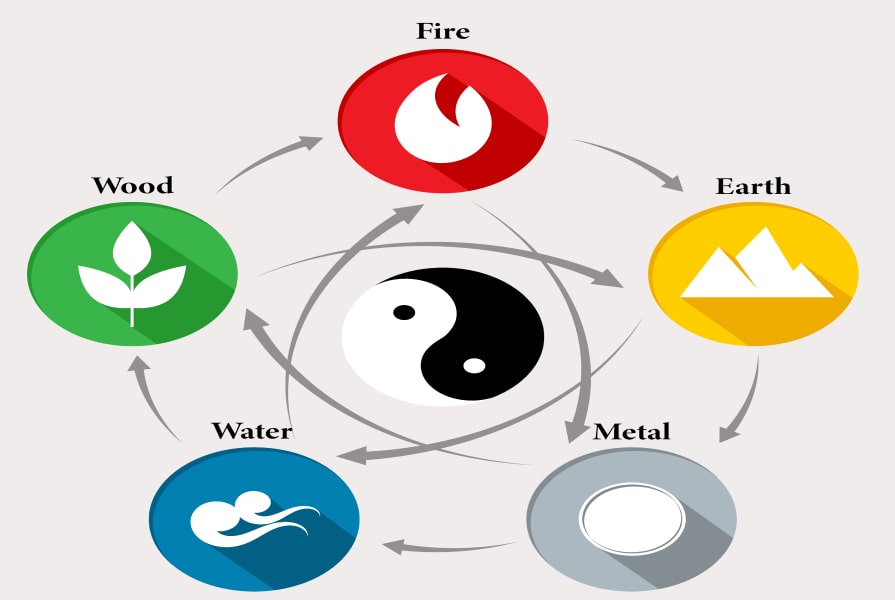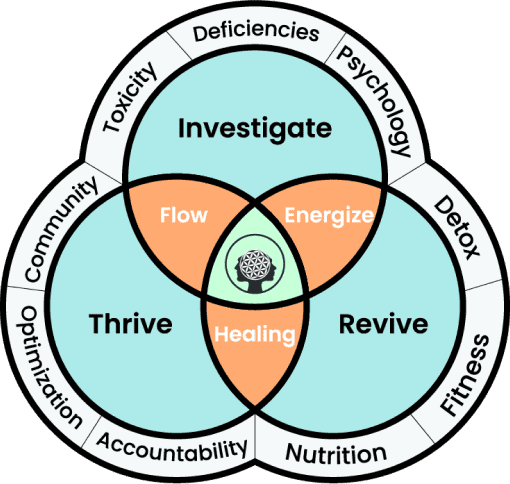Do you want to feel more inspired, productive, and happy in your home or workspace? It might be time to try Feng Shui, an ancient Chinese practice that focuses on creating a harmonious and balanced environment by placing objects and flowing energy. With its roots in Taoist philosophy, Feng Shui has been used for centuries to improve health, wealth, and happiness.
This blog will explore the principles and show you how to apply them to create a space that inspires, energizes, and supports you. So, whether you’re looking to improve your work-life balance, attract more abundance, or create a more peaceful home environment, read on to learn how Feng Shui can help you achieve your goals.
The Basics of Feng Shui
Feng Shui is based on fundamental principles, including the Five Elements and the Bagua Map. The Five Elements are water, fire, earth, metal, and wood, and each element is associated with specific qualities and attributes. The Bagua Map represents the energy in a space, and it helps practitioners identify areas where energy may be imbalanced and need correction.

The Five Elements
The Five Elements are essential to Feng Shui, as they represent the universe’s basic building blocks of energy. Each element is associated with specific qualities and attributes, and they interact with one another to create balance and harmony.
Water: Water is associated with flow and flexibility, and it is said to promote feelings of calm and tranquility.
Fire: Fire is associated with passion and excitement and brings warmth and vitality to a space.
Earth: Earth is associated with stability and grounding and is said to provide a sense of security and comfort.
Metal: Metal is associated with clarity and precision, and it is said to bring focus and determination to a space.
Wood: Wood is associated with growth and renewal, and it is said to promote feelings of creativity and inspiration.
The Bagua Map
The Bagua Map represents the energy in a space, and it helps practitioners identify areas where energy may be imbalanced and need correction. The map is divided into nine sections, each corresponding to a different aspect of life, such as wealth, relationships, or health. By understanding the energy of each area, practitioners can make changes to the layout and decor to improve the flow of energy and create balance.
Now that we understand the Bagua Map and how to apply it to our living space let’s dive deeper into the principles.
What are the principles of Feng Shui?
The principles of Feng Shui are based on Qi (life force energy) and its environmental impact. Here are the essential principles:
Qi flow:
This principle states that the flow of Qi should be smooth and unobstructed to create a harmonious and balanced environment. An area with good Qi flow will feel energizing and promote good health, while a location with stagnant Qi will feel oppressive and contribute to feelings of stress and negativity.
Balance:
Feng Shui emphasizes the importance of balance in the environment, both aesthetically and energetically. This includes a balance between yin and yang (positive and negative) energy, the balance between the five elements (earth, metal, water, wood, and fire), and the balance between the different areas of space.
The Bagua:
The Bagua is a map representing the different areas of a space and how they relate to various aspects of life, such as wealth, health, and relationships. By understanding the Bagua, you can determine which areas of your home or workplace need the most attention and make adjustments to improve the flow of Qi in these areas.
The five elements:
The five elements in Feng Shui (earth, metal, water, wood, and fire) are believed to interact with each other and impact the flow of Qi. Incorporating the appropriate elements into a room can create balance and harmony and enhance the positive energy flow.
Color plays a vital role in Feng Shui as it is believed to impact Qi’s flow strongly. Each color is associated with a specific element and can enhance the energy of a particular area or aspect of life.
Positioning:
The positioning of objects and furniture within a space is also an important principle of Feng Shui. Placing objects in the right location can improve Qi’s flow and enhance positive energy.
Clutter:
Clutter is believed to impede the flow of Qi, so it is essential to keep areas as clean and organized as possible. Regular cleaning and decluttering can improve the energy flow and create a more harmonious environment.
By incorporating these principles into your home or workplace, you can create a harmonious, balanced space conducive to good health, wealth, and happiness.

Getting Started
If you’re interested in incorporating Feng Shui into your life, there are many ways to get started. Whether you work with a professional consultant, learn about Feng Shui on your own, or stay open to its principles and ideas, it is crucial to take action and start making positive changes.
Working with a Professional Consultant
Working with a professional Feng Shui consultant is a great way to start. An expert can help you understand the principles, identify areas of your home or workplace that may need improvement, and make recommendations for positive changes.
Learning about Feng Shui on Your Own
If you prefer to learn about Feng Shui by yourself, many resources are available, including books, online courses, and workshops. By learning about it, you can develop a deeper understanding of the practice and start incorporating its principles into your life.
Staying Open to the Principles and Ideas of Feng Shui
Finally, staying open to the principles and ideas of Feng Shui can help you to start incorporating the practice into your life.
By keeping an open mind and being willing to make positive changes, you can experience the benefits for yourself and create a more harmonious and fulfilling life.
Embrace the Benefits of Feng Shui for a Harmonious and Fulfilling Life
Feng Shui is an ancient Chinese practice that seeks to harmonize the energy in a space to promote health, wealth, and happiness for those who inhabit it.
By understanding the basics, including the Five Elements and the Bagua Map, and incorporating its principles into your home and workplace, you can improve energy flow and create a more harmonious and fulfilling life.
Whether you work with a professional consultant, learn about Feng Shui on your own, or stay open to its principles, it is essential to take action and start making positive changes.
Improving Your Home
One of the primary ways to use Feng Shui is to enhance the energy in your living space. Energy flow techniques span a range of strategies to improve energy flow in a home, including decluttering, arranging furniture for balance and harmony, and placing symbols and objects for positive energy.
Enhancing the Energy in Your Living Space
Decluttering is an integral part of Feng Shui, as it helps to clear away negative energy and create a more harmonious environment. Start by removing any items that no longer serve a purpose, and then organize the remaining items to promote balance and symmetry.
Arranging Furniture for Balance and Harmony
Furniture arrangement is another crucial aspect of Feng Shui, as it can significantly impact the flow of energy in a space. When arranging furniture, aim for balance and symmetry, and consider the placement of key pieces, such as the bed or the sofa.
Placing Symbols and Objects for Positive Energy
Placing symbols and objects associated with positive energy can also help improve energy flow in a space. Some popular options include crystals, plants, and statues, each of which can help to enhance the energy of a particular area of the home. For example, placing a fountain in the home’s wealth area can help promote financial abundance, while displaying a crystal in the health area can help improve physical well-being.
Improving Your Workspace
In addition to improving the energy in your home, Feng Shui can also boost productivity and harmony in the office. It is possible to improve the flow of energy and create a more positive working environment in almost any office setting, whether a traditional or a home office.
Creating a Productive and Harmonious Office Space
By decluttering and arranging your furniture for balance and harmony, you can improve the energy flow in your office and create a more positive and productive working environment. Additionally, incorporating plants and other positive energy symbols can help enhance your workspace’s energy.
Incorporating Feng Shui into Your Business Practices
Incorporating Feng Shui into your business practices can also positively impact your work life. For example, by aligning your business goals with the principles of Feng Shui, you can create a more harmonious work environment and improve your relationships with coworkers.
Using Feng Shui to Improve Relationships with Coworkers
Another crucial aspect of incorporating Feng Shui into your workplace is improving relationships with coworkers. Creating a harmonious and positive work environment can improve communication and collaboration and build more substantial and productive relationships with coworkers.

How do you Feng Shui your life?
Feng Shui is not just about the physical space around you but also about the energy and flow of your life. Here are some tips on how to Feng Shui your life:
Identify areas of your life that need improvement:
Start by assessing the different areas of your life, such as your health, relationships, career, and finances, and identify areas that need improvement.
Clear clutter:
Clutter in your physical space can also create chaos, so start by decluttering your home and workspace. It will help to create a more harmonious and organized environment.
Surround yourself with positive energy:
Surround yourself with positive people, objects, and experiences. It can include spending time with supportive friends and family, keeping your home and workspace clean and organized, and incorporating elements such as plants, art, and music that bring you joy.
Focus on balance:
Balancing your work, and personal life is vital for your overall well-being. Set aside time for self-care and relaxation, and avoid overloading yourself with too much work or responsibilities.
Incorporate the five elements:
The five elements in Feng Shui (earth, metal, water, wood, and fire) can be incorporated into your life to enhance the flow of positive energy. For example, including elements such as water (through swimming or meditating near water) or wood (through activities like hiking or gardening) can help improve your overall well-being.
Create a positive intention:
Setting positive intentions for your life can help to create a clear direction and focus. Write down your goals and aspirations and surround yourself with reminders of what you want to achieve.
Practice gratitude:
Regularly practicing gratitude and focusing on what you have, rather than what you lack, can help to shift your energy and focus towards positivity and abundance.
By incorporating these tips and techniques into your life, you can create a harmonious and balanced environment that supports your health, wealth, and happiness.
What are the benefits of Feng Shui?
Feng Shui has been used for centuries to improve health, wealth, and happiness. Here are some benefits of incorporating Feng Shui into your life:
Improved health:
Feng Shui can help create a balanced and harmonious environment that supports good health and well-being. Incorporating plants, water, and natural light into your space can improve positive energy flow and create a more peaceful and supportive environment.
Increased wealth and abundance:
Feng Shui can help attract prosperity and abundance into your life by creating a space conducive to success and prosperity. The best way to achieve this is by using symbols and objects associated with wealth and abundance and by ensuring positive energy flow.
Enhanced relationships:
Feng Shui can help to improve relationships by creating a harmonious and balanced environment. One way to do this is by using objects and colors associated with love and relationships and by ensuring positive energy flow in areas that relate to relationships.
Improved work-life balance:
Feng Shui can improve work-life balance by creating a space that supports productivity, focus, and creativity in your workspace while providing a peaceful and relaxing environment in your home.
Increased happiness and peace:
Feng Shui can help to create a harmonious and peaceful environment that supports happiness and well-being. Incorporating plants, natural light, and positive affirmations into your space can improve positive energy flow and create a more uplifting and supportive environment.
By incorporating the principles of Feng Shui into your life, you can experience a range of benefits that can help to improve your health, wealth, relationships, and overall happiness.

The Power of Feng Shui: Transforming Your Life with Balance and Harmony
Feng Shui is an ancient Chinese practice utilized for centuries to improve health, wealth, and happiness. By incorporating the principles into your life, you can create a harmonious and balanced environment that supports your goals and aspirations.
From the Bagua Map to the principles of Chi energy, the five elements, and yin and yang, Feng Shui offers a range of tools and techniques that can help you create a beautiful and functional space.
Whether you’re looking to improve your work-life balance, attract more abundance, or simply create a more peaceful home environment, the principles can help you to achieve your goals. So why wait? Embrace the benefits and transform your life today!











Leave a Reply
You must be logged in to post a comment.